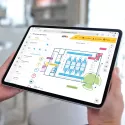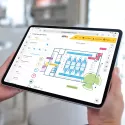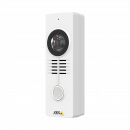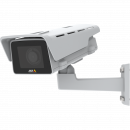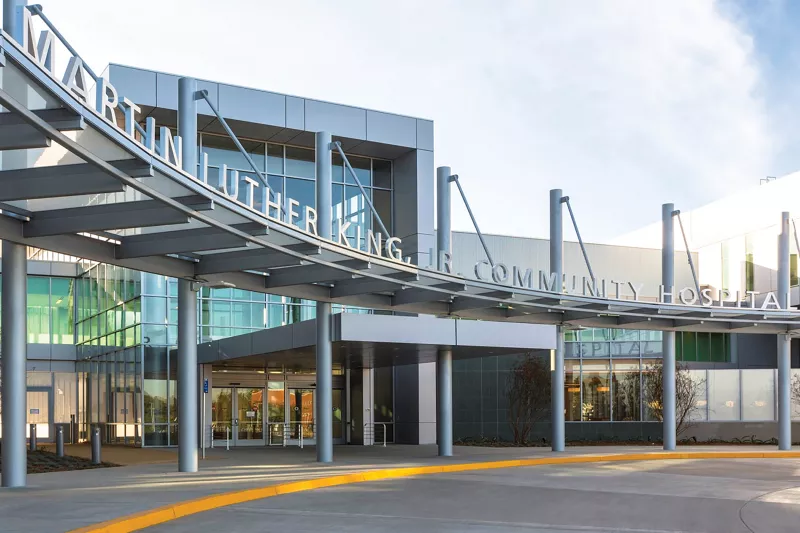
Layering Hospital Security for Greater Protection
Martin Luther King, Jr. Community Hospital’s security system incorporates technology from Axis Communications, 2N, and Sound Intelligence to improve visitor screening, incident detection, and access control to restricted areas.
Making community health and safety top priorities
When Martin Luther King, Jr. Community Hospital (MLKCH) opened in 2015, its goal was to provide the South Los Angeles community with a quality of healthcare equal to that of more affluent areas. Within the state-of-the-art facility, skilled medical staff use advanced technology to address the pressing obstacles to good health faced by their patients.
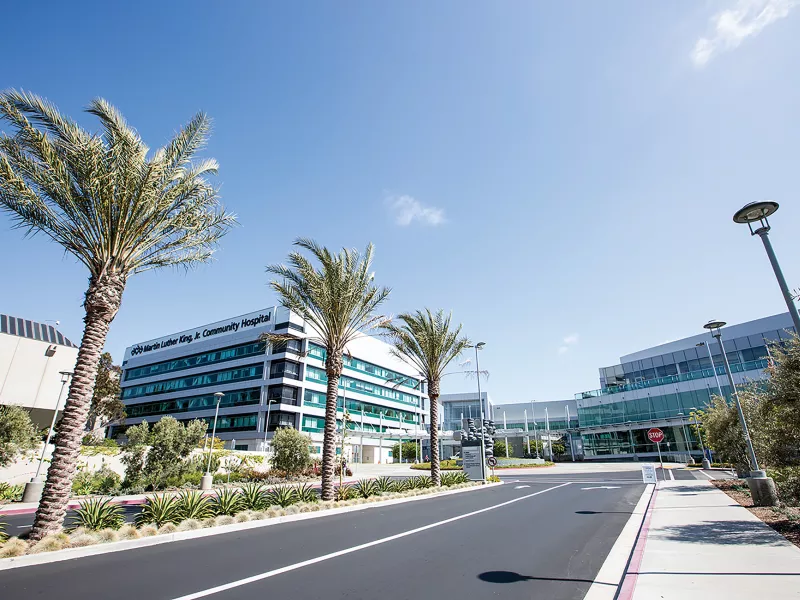
Aware of the nationwide rise in hospital workplace violence, administrators have also taken steps to ensure MLKCH is a safe and secure environment for patients, staff, and visitors. To heighten protections, the hospital partnered with TRL Systems, a systems integrator and Axis partner, to design a comprehensive security solution that would enable security staff to maintain close watch over activity throughout the medical facility.
“We’ve fostered a great relationship with TRL Systems and Axis Communications,” shares Trenton Jackson, Martin Luther King, Jr. Community Hospital’s Director of Public Safety and Support Services. “To date we’ve installed nearly 500 security cameras in and around the hospital. Ninety to 95 percent of those are Axis network cameras. And that number will continue to increase as our legacy devices reach end-of-life and we replace them with new Axis technology.”
Upgrading video intercoms for better screening
The hospital also swapped out its outdated video intercom system for a new 2N video intercom solution from Axis. The new technology provides security personnel with better two-way audio-video communication with individuals approaching locked access control points. As a result, security has become much more effective at screening visitors and blocking potentially threatening individuals from attempting to enter. Strategic placement of the video intercoms has also enabled MLKCH to better secure sensitive areas, such as maternity wards, by restricting access to authorized personnel only.
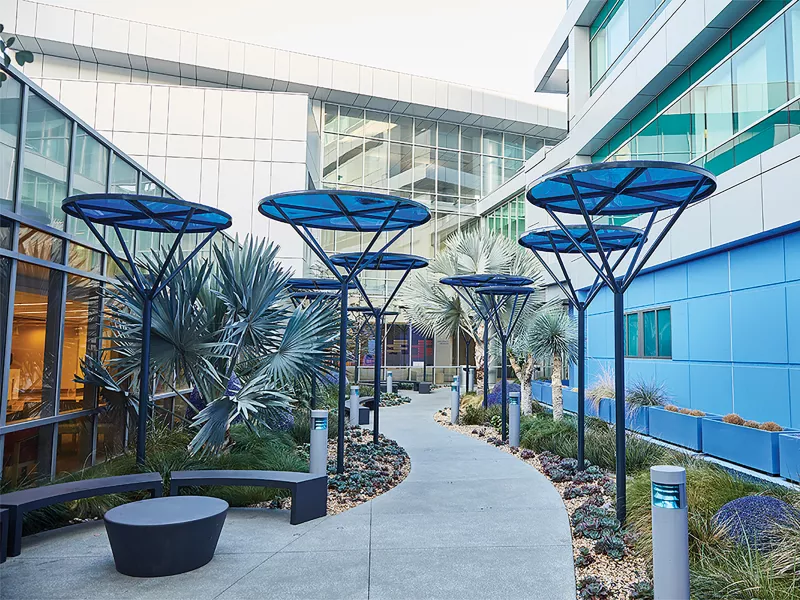
Using forensic quality video to combat false liability claims
MLKCH has found that deploying Axis network cameras in high-traffic common areas also helps the hospital reduce costly liability claims. Because of the high forensic quality of the video, the hospital can quickly ascertain who was at fault in slip/trip/fall incidents. Administrators believe this one application alone has the potential to save the hospital tens of thousands of dollars in fraudulent liability cases, money they can readily reallocate to patient care and protection.
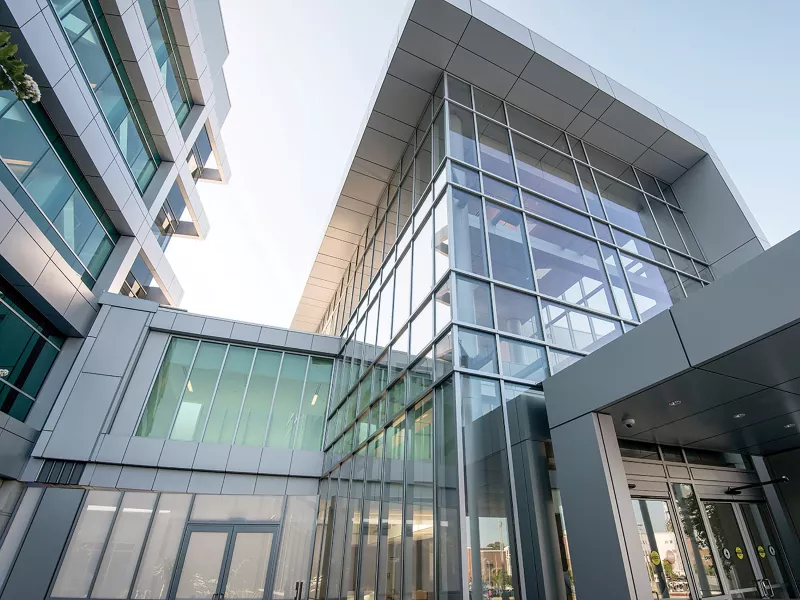
Turning to emerging technology for more awareness
In addition to the recent upgrades to its security cameras, video intercoms, and video management capabilities, MLKCH has worked with Axis to identify other emerging technologies such as intelligent sound detection that can help better protect the hospital premises. According to the Occupational Safety and Health Administration (OSHA), the risk of serious workplace violence is nearly four times greater for healthcare workers than those in other industries, and the ability to identify potentially aggressive or hazardous behavior can help hospitals better protect not just patients, but employees as well.
“We’ve installed Sound Intelligence, an acoustic monitoring technology, in our emergency room, main lobby, cafeteria, and our satellite medical buildings to alert security to aggressive voices, breaking glass, and even gun fire,” shares Jackson. “This gives us an added layer of safety, peace-of-mind for our staff, and better protection for our patients.”
From a security standpoint, our mission here at MLKCH is to cultivate a safe and secure environment. Having Axis camera technology in place allows us to preserve our healing environment while assisting our staff in providing the compassionate and quality care that we’re known for.
Enabling more individualized care
Integrating Sound Intelligence analytics with its Axis cameras in heavily trafficked, high-stress environments enables the hospital’s security team to detect threats more quickly than with video cameras alone. Early detection of aggressive behavior and other troubling actions allows hospital staff to address dangerous situations well before they escalate.
The hospital is also evaluating facial recognition technology – particularly in access-controlled areas –to automatically trigger recognition of authorized personnel and alert security to potential intruders.

Focusing on more individualized care
Another technology that MLKCH deployed involves patient monitoring. While the hospital has had great success keeping common areas safely monitored with network cameras, MLKCH was initially reluctant to use them in patient rooms. That reluctance changed with the advent of virtual sitter technology that enables staff to preserve patient privacy without compromising their care. Using video cameras equipped with two-way audio, virtual sitters can remotely monitor and even communicate with high-risk patients without having to be in the room. When a sitter sees a patient in distress or attempting to get out of bed, they notify nursing staff.
“One thing we are very keen on around here is fall prevention,” claims Jackson. “We make it the responsibility of each and every employee to assist patients when needed and alert nursing staff as necessary.”
Remote patient monitoring allows virtual sitters to cover multiple rooms simultaneously, taking a big burden off medical staff who can’t be in every patient room at once. “Its use has greatly helped reduce patient falls,” reports Jackson.
Always looking forward
As MLKCH reflects on the success of its current network solutions, hospital officials have gained confidence in applying new and emerging technologies into their future security plans. Whether to keep sensitive areas safe from potential intruders or protect difficult or high-risk patients from creating potentially dangerous situations for themselves or others, the hospital will continue to partner with Axis and other technology leaders to improve the hospital’s safety and security now and in the future.
Products & solutions
















